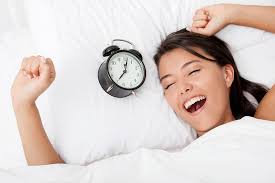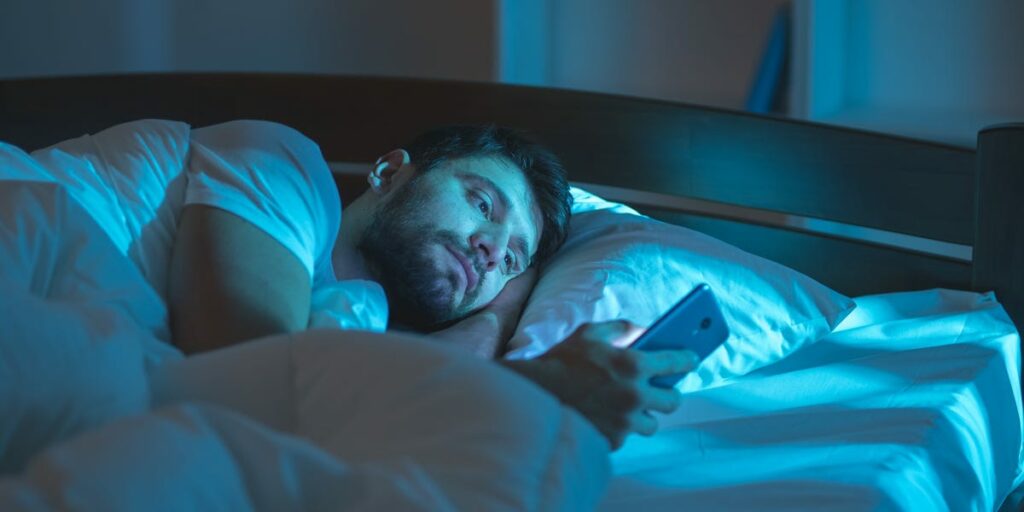How much sleep do you really need? It’s a question that has been debated for years, and the answer is still somewhat unclear. However, there are some general guidelines that can be followed to help ensure you’re getting the sleep your body needs. In this sleep quiz, we will ask you a series of questions about sleep and how it affects your daily life. We will also provide some tips on how to get better sleep! So put down that coffee and take our quiz to find out how much sleep you should be getting each night!
Contents
Sleep Quiz
 Sample questions for sleep quiz-
Sample questions for sleep quiz-
1. How many hours of sleep are you getting?
- Less than six
- Six to eight
- More than eight
- I don’t know!
2. Do you feel well-rested after sleeping for the number of hours you usually sleep?
- No, I always feel tired
- Sometimes I feel rested and sometimes I don’t
- Yes, I always feel well-rested
- I don’t know!
3. Do you sleep through the night?
- No, I wake up often
- Sometimes I sleep through and sometimes not
- Yes, I sleep all night long
- I don’t know!
4. Do you sleep in the same place every night?
- No, I sleep in different places
- Sometimes I sleep at home and sometimes not
- Yes, always at home or other regular spots (hotel room if traveling)
- I don’t know!
5. Do you sleep at a regular time each night?
- No, I go to sleep whenever I feel like it
- Sometimes I sleep at the same time and sometimes not
- Yes, always at the same hour (give or take an hour)
- I don’t know!
6. Are you a morning person or a night person?
- Morning
- Evening
- Neither, I’m in the middle
- I don’t know!
7. Do you sleep in the same position every night?
- No, I sleep in different positions
- Sometimes I sleep on my side and sometimes not
- Yes, always on my side or other regular position (stomach if traveling)
- I don’t know!
8. Do you use electronics in bed?
- Yes, I watch TV or use my phone/computer before sleep
- Sometimes I do and sometimes not
- No, I don’t use electronics in bed
- I don’t know!
9. Do you sleep better with a fan or without one?
- Yes, I sleep better with a fan
- Sometimes it helps and sometimes not
- No, the fan doesn’t help me sleep better
- I don’t know!
10. Do you sleep better with the lights on or off?
- With the lights on
- Off, but I have a nightlight
- It doesn’t matter to med
- I don’t know!
11. Do you have trouble falling asleep at night?
- Yes, it often takes me more than 30 minutes to fall asleep
- Sometimes it takes me a while and sometimes not
- No, I easily fall asleep within 15-30 minutes
- I don’t know!
12. Do you wake up in the middle of the night?
- Yes, almost every night
- A few times a week
- Once a month or less
- I don’t know!
13. Do you sleep better alone or with someone else?
- a. Alone, I sleep better by myself
- b. Sometimes it helps and sometimes not
- c. With someone else, I sleep better in a company (family member/pet)
- d. I don’t know!
14. Do you sleep better in the dark or with some light?
- In the total darkness
- With a nightlight on
- It doesn’t matter to me
15. Do you sleep better in your own bed or somewhere else?
- In my bed
- Sometimes at home and sometimes not
- Somewhere else (hotel room/friend’s house)
- I don’t know!
Answers
 If you answer more than six of these questions with “I don’t know,” it’s time to start thinking about your sleep habits! While the answer to how much sleep you need is still somewhat unclear, there are some general guidelines that can be followed to help ensure you’re getting the sleep your body needs.
If you answer more than six of these questions with “I don’t know,” it’s time to start thinking about your sleep habits! While the answer to how much sleep you need is still somewhat unclear, there are some general guidelines that can be followed to help ensure you’re getting the sleep your body needs.
This sleep quiz will ask you a series of questions about sleep and how it affects your daily life. We will also provide some tips on how to get better sleep! So put down that coffee and take our sleep quiz to find out how much sleep you should be getting each night!
Benefits Of Getting Enough Sleep
 Sleep is essential for our health and wellbeing. The sleep we get at night
Sleep is essential for our health and wellbeing. The sleep we get at night
- Helps repair damage done during the day
- Regulates body temperature
- Strengthens memory consolidation process which allows us to recall information better when awake
- Produces hormones that regulate growth in children as well as adults (which means getting enough sleep will help keep you tall!)
- Improves moods by helping to control the release of stress hormones
- Helps maintain a healthy weight by regulating our hunger signals.
So don’t forget about sleep! It’s important for more than just energy levels and being able to function during the day. If you want to live longer, sleep better at night.
How Much Sleep Do You Need?
Most people need between six and eight hours of sleep per night. However, if you are getting less than six hours of sleep or more than eight hours of sleep each night, you may not be getting the sleep your body needs. Try to aim for seven or eight hours of sleep each night to feel your best!
If you have trouble falling asleep at night, try going to bed and waking up at the same time every day (even on weekends). Avoid watching TV or using electronics in bed, and make sure your room is dark and quiet. You may also want to avoid caffeine before bedtime. If you still have trouble sleeping, talk to your doctor.
The amount of sleep you need also varies depending on your sleep habits and lifestyle. For example, people who work late or have children often need more sleep than those who don’t. Generally speaking, however, most people need between seven and nine hours of sleep each day.
What Happens If You Don’t Sleep Enough?

Getting enough sleep is important for a variety of reasons. First and foremost, it helps you feel rested and refreshed after a good night’s sleep. Additionally, sleep plays a critical role in maintaining your physical and mental health. For example, research has shown that lack of sleep can lead to:
Weight gain: Sleep deprivation may cause hormonal imbalances in the body that can lead to weight gain and obesity.
Depression: Sleep deprivation has been linked to depressive symptoms such as difficulty concentrating or feeling sad, irritable, or moody.
Diabetes: Sleep loss leads to insulin resistance which can increase your risk of developing diabetes over time.
Heart disease: Sleep deprivation has been linked with high blood pressure, heart attack, and stroke.
Trouble concentrating: sleep deprivation can lead to accidents due to lack of focus and slowed reaction time.
High blood pressure: Sleep deprivation has been linked with high blood pressure, heart attack, and stroke
Memory problems: Lastly, sleep helps you stay alert and focused throughout the day. This is because when we sleep our brains are still active; they continue processing information from the day before so that it can be stored in memory later on. So if you want to be your best self, it’s important to get enough sleep each night!
How Can You Get Better Sleep?

If you’re having trouble getting enough sleep, there are a few things you can do to improve your sleep habits.
- Try going to bed and waking up around the same time every day (even on weekends). This will help your internal clock reset itself so it knows when it should be waking up in the morning.
- If possible, avoid looking at bright screens (such as TV or computer) before going to bed because they confuse your brain into thinking it’s daytime even when it’s not! Try reading instead of watching television right before sleep.
- Establish a sleep routine that helps you relax and unwind before sleep. This could include reading, taking a hot bath, listening to calming music, or practicing yoga/meditation for about 20 minutes every night as part of your bedtime ritual. You can also try drinking chamomile tea which has been shown to help people fall asleep faster than those who don’t drink any beforehand (and is caffeine-free).
- If you’re still having trouble sleeping, talk to your doctor about possible sleep disorders that may be causing your problems. There are a variety of sleep disorders that can impact how well (or how poorly) you sleep each night, so it’s important to get them diagnosed and treated if necessary.
- Establish a bedtime routine that helps you relax and unwind before sleep. This could include reading, taking a hot bath, or listening to calming music.
- Sleep in a dark and quiet room. If you’re having trouble sleeping, try wearing earplugs or an eye mask to block out light and noise from your environment that may be keeping you awake.
- Keep the temperature of your bedroom between 65 F (18 C) – 75 degrees Fahrenheit (24 degrees Celsius). When it’s too hot or cold, it can be difficult to sleep.
- Avoid caffeine and alcohol before bed. Caffeine is a stimulant and can keep you awake, while alcohol makes it harder to stay asleep once you’ve fallen asleep.
- Exercise regularly but try not to work out within three hours of going to bed. Exercise releases endorphins which can make it harder to sleep. Additionally, working out right before bedtime can raise your body temperature and make it more difficult to fall asleep.
- Avoid eating a large meal within two hours of going to bed. A full stomach can keep you up at night. Try having a light snack instead if you’re hungry before sleep.
The National Sleep Foundation recommends most adults get eight hours of sleep per night. Getting enough sleep is important for a variety of reasons, including maintaining physical and mental health. Hopefully, these tips will help you get the most out of your sleep and feel more rested during the day!
Therapy For Better Sleep
If you struggle with sleep issues, consider therapy. It can help you identify and address underlying causes of sleep disorders or problems falling asleep at night. Therapy will also teach you effective coping mechanisms and strategies to improve your sleep habits – all without medication! The therapy that is beneficial for sleep is cognitive-behavioral therapy (CBT). CBT is a form of talk therapy that helps you become more aware of your thoughts and behaviors and teaches you how to change the way you think and behave in order to sleep better. For more information on sleep disorders and sleep therapies, please visit our website.
Conclusion
Sleep deprivation is a huge issue in our society, and it’s only getting worse. More than a third of adults don’t get enough sleep on a regular basis. And this number is only going up as we become more and more connected to technology. So in this sleep quiz, you learned about how sleep works, the benefits of sleep, and how much sleep you really need each night. You also learned some tips for improving your sleep hygiene. If you want to learn even more about sleep – including how to create a bedtime routine and deal with insomnia – check out our other blog posts on sleep health. Thanks for taking this sleep quiz!
A Word From Therapy Mantra
Your mental health — Your psychological, emotional, and social well-being — has an impact on every aspect of your life. Positive mental health essentially allows you to effectively deal with life’s everyday challenges.
At TherapyMantra, we have a team of therapists who provide affordable online therapy to assist you with issues such as depression, anxiety, stress, workplace Issues, addiction, relationship, OCD, LGBTQ, and PTSD. You can book a free therapy or download our free Android or iOS app.


